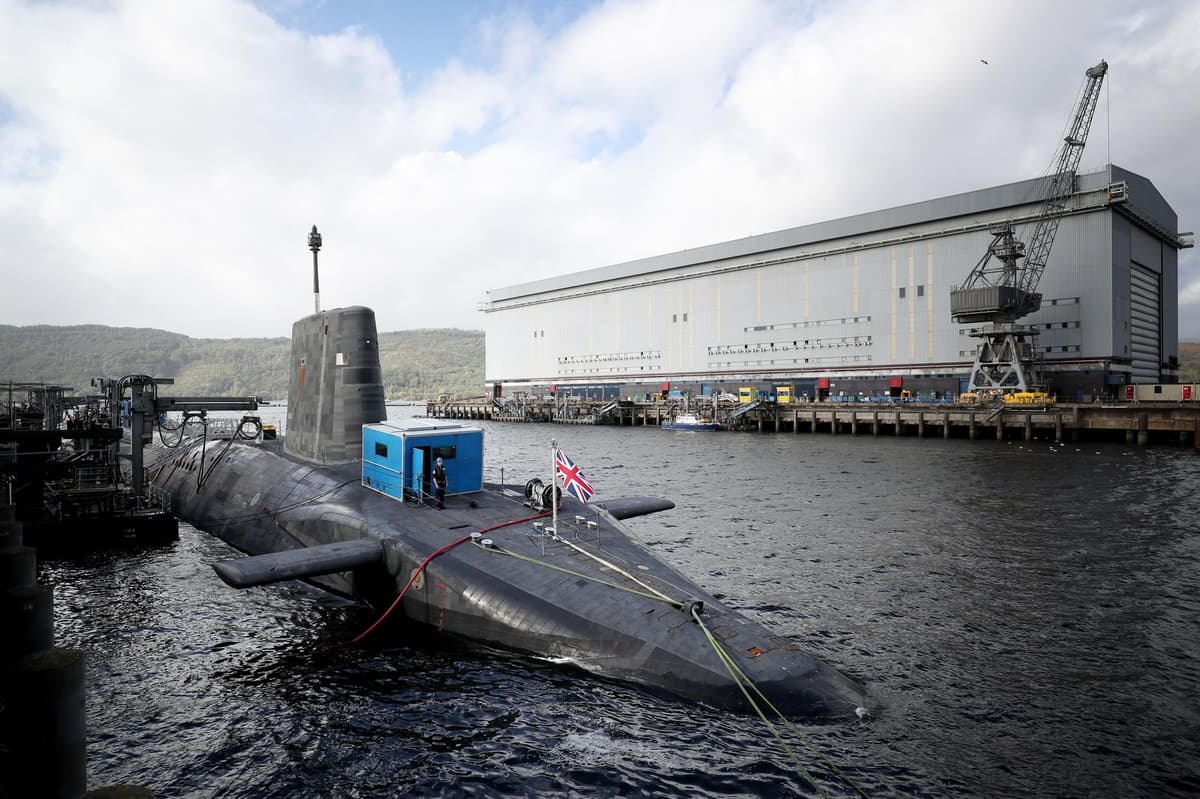How Scotland and Trident would benefit the most from 2.5% defence spending rise
Labour's Defence Spending Commitment and Scotland's Role

The Labour Party has made a significant pledge to increase defence spending in the UK, aiming for a target of 2.5% of the nation’s GDP. However, the timeline for achieving this goal remains unclear. This commitment comes amid rising concerns about global security, particularly regarding the threat posed by Russia. Labour MP Graeme Downie, representing Dunfermline and Dollar, has emphasized that Scotland stands to gain the most from this increase in defence expenditure. He argues that Scotland is crucial to the UK’s defence strategy and that the proposed spending target should be viewed as a minimum requirement.
Scotland’s Strategic Importance in Defence
Graeme Downie has voiced strong support for increased defence spending, highlighting Scotland’s pivotal role in the UK’s military framework. He asserts that Scotland is at the “forefront of the UK’s defence,” with vital military assets located within its borders. For instance, Lossiemouth hosts Quick Reaction Alert (QRA) aircraft that protect the northern border, while Faslane is home to the UK’s nuclear deterrent. Additionally, shipbuilding activities in Rosyth and on the Clyde contribute significantly to the defence sector.
Downie points out that Scotland’s geographical position and existing military infrastructure make it an essential player in national and NATO defence strategies. He believes that the proposed 2.5% GDP target for defence spending should be viewed as a starting point rather than a ceiling. He argues that the UK must be prepared to respond to global threats, particularly in light of Russia’s aggressive posture. Downie emphasizes the need for the UK to modernize its military capabilities to meet NATO obligations and ensure national security.
Furthermore, Downie has raised concerns about the Scottish National Party’s (SNP) engagement with the defence sector. He notes that while some SNP MPs have expressed support for increased defence spending, the Scottish Government has not actively engaged with key players in the industry. This lack of engagement could hinder Scotland’s ability to fully capitalize on the benefits of increased defence investment.
India and Oman Strengthen Maritime Defence Ties with 6th Edition of Navy Staff Talks
The Need for Increased Defence Spending
The urgency for increased defence spending is underscored by internal Ministry of Defence calculations, which suggest that the UK should allocate 3.6% of its GDP to modernize its military and fulfill NATO commitments. Prime Minister Sir Keir Starmer has defended the decision not to set a specific timeline for reaching the 2.5% target, citing the need for a comprehensive strategic defence review.
Downie argues that the British public must be made more aware of the global instability that threatens national security. He believes that the Labour Government’s commitment to 2.5% defence spending is a positive step, but it should not be seen as the final goal. Instead, Downie insists that this figure should serve as a foundation for future increases in defence investment.
He warns that failing to invest adequately in defence could embolden adversaries like Russian President Vladimir Putin. Downie stresses that the UK must maintain its status as a significant military player on the global stage. He highlights the importance of collaboration with allies, including France and Germany, to address shared security challenges.
Moreover, Downie points out that the current geopolitical landscape requires a proactive approach to defence spending. He notes that countries like Estonia, Poland, and Finland are increasing their military budgets in response to Russian aggression. The UK must also demonstrate its commitment to deterrence by investing in its military capabilities.
